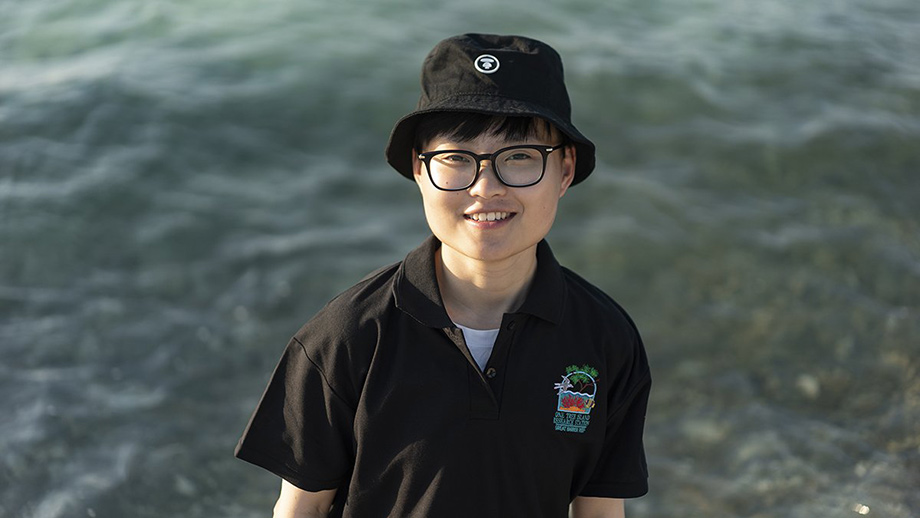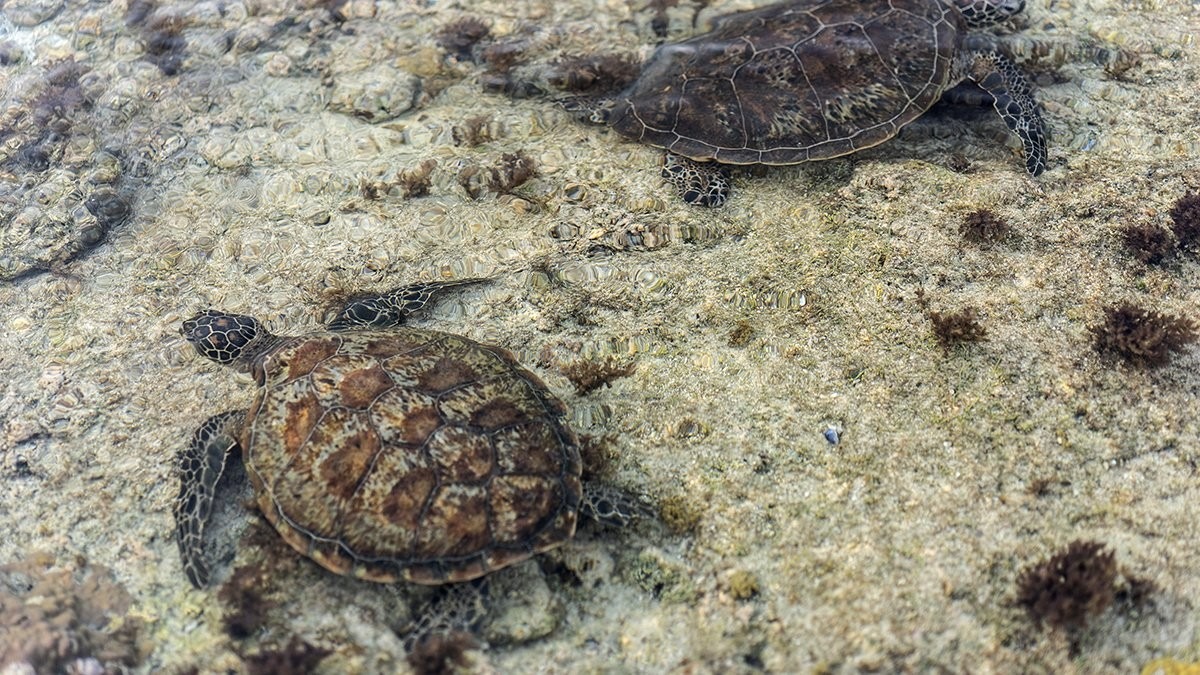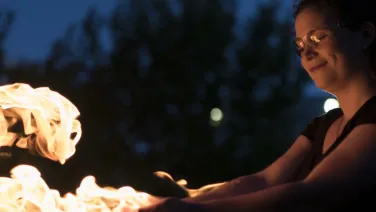
What do you do if you love marine science - but can’t swim?
And yet, Bobby Sun is about to graduate with a Bachelor of Science (Advanced) (Honours), specialising in marine science.
Bobby explains how she ended up in this predicament:
“My Honours supervisor asked me if I wanted to do my research on One Tree Island”—a coral cay on the Southern Great Barrier Reef—“and I was so scared to tell him I couldn’t swim!”
After mustering the courage to confess that she was a land-dwelling marine scientist, Bobby’s supervisor told her not to worry: no swimming would be required.
Sure, Bobby’s Honours fieldwork involves studying bio-mineral chemistry under the sea; but luckily, she can do this while standing in water about a foot deep, at low tide, on the reef flat.
Arriving on the crunchy algal bed of the reef flat, Bobby searches for her sampling points, where she measures the composition of the water in relation to the formation of one vital reef structure: Coralline Crustose Algae (CCA).
Imagine the build-up of chewing gum under a school desk, a pink fossilised crust secreted by years of bored students. CCA is oddly similar, except the crust is secreted by photosynthesising algae, and more importantly, holds the entire reef together. It fills in every nook and cranny of the reef flat, binding coral and protecting the inner lagoon where your favourite Little Mermaid characters dance to the tune of ‘Under the Sea’.
“Global warming doesn’t just mean a rise in sea temperature,” Bobby explains.
“When CO2 increases in the Earth’s atmosphere, most of it gets absorbed into the ocean. This causes an increase in acidity, which can begin to dissolve organisms on the reef. Some are more prone to dissolution than others because of what they are made of, and CCA is one of the most vulnerable.
“I want to find out how resilient these crustose structures are, whether they can reform using different forms of calcium carbonate, or if they will disappear completely under increased acidity.”
Like most Honours students, Bobby has only scratched the surface when it comes to answering her question. So she has decided to get to the bottom of it via a PhD.
“I’m so thrilled that I get the opportunity to continue researching what is happening on the reef and other parts of the ocean.”
I ask her if she will come back to One Tree Island.
“I think so, yes. I love it here so much and it is the perfect place to study reef processes. It’s just so calm out on the water, especially at night under the stars. I feel like I could stand there forever."
On this trip to One Tree Island, Bobby had her first fully submerged dip in the water since living in the seaside town of Richao, China, as a child. Nestled in the safety of a yellow pool noodle, and surrounded by the watchful eye of her colleagues, a smile slowly spread across her face.
“Yeah, I think it’s time to learn to swim,” she says. “I want to see what’s happening under there.”
If you want to research the oceans of the world, why not dive into a degree in Earth and Marine Science at ANU.




